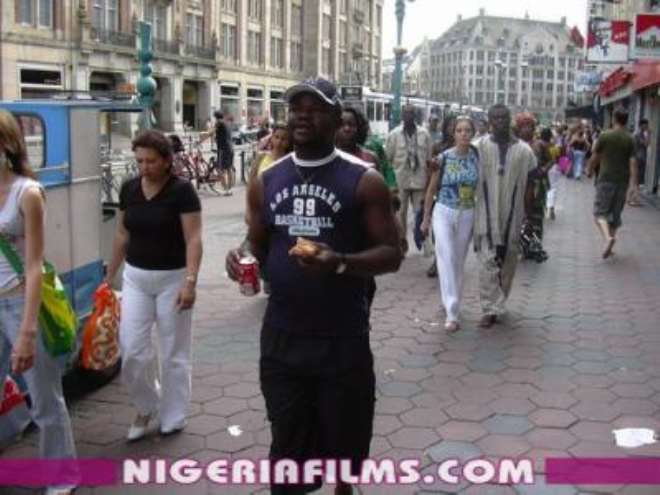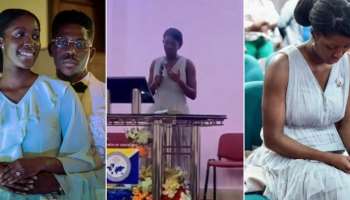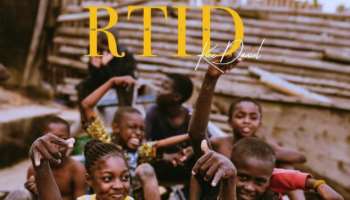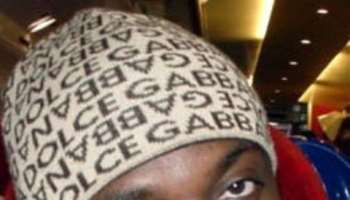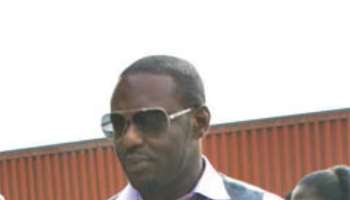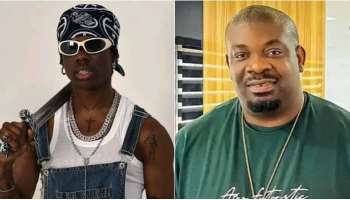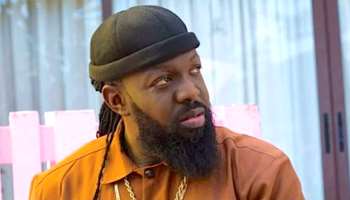MY PARTNER IS EMEM ISONG -----LANCELOT ODUWA IMASUEN
The International Award-winner director extraordinaire Lancelot Oduwa Imasuen visited The Netherlands and gracefully took time to share his thoughts with EagleEye on success, Nollywood , the international audience and so much more. Food for thought.
You travel a lot abroad and meet fans all over the world. What's your perception of Nollywood abroad?
A great sense of fulfillment, satisfaction and determination. I have been to Italy, Belgium, France and to so many places where I have met people setting up shops to sell Nigerian movies. It is quite amazing to see something that started out as a home production for the Nigerian public only has crossed boarders in such a dramatic manner.
What in your opinion are the challenges or shortcomings Nollywood is facing today on the international scene?
Nollywood has to face the challenges of the 21st century. There is no comparison really with Hollywood or Bollywood because each industry has its own environment and faces its own challenges.
Wherever I go, the number one complaint I hear continuously is about the poor quality of the sound. One thing you have to know is that we are extremely limited budget wise and investment on equipment is extremely low.
We don't have any professional sets like a film village that would be equipped with the right material for the right purpose. We shoot mostly in people's houses and these locations are absolutely not fit for shooting a movie.
You can hear the generator purring in the background and those circumstances affect greatly the quality of the sound.
Another challenge we face is piracy in the export market.
Production companies like Henry Black Productions, in Amsterdam, is doing a lot of good to the Nigerian movie industry by selling our products rightfully and by doing so positively contributing to the exposure of our work outside of Nigeria.
Tell us about “The August Meeting”.
It was crowned at the Milan Film Festival. I came across the news that the “August Meeting” was a tradition back East and found it mostly interesting. So I went to Enugu and started researching the subject. It is a true-life event happening every year in our country so I wanted to tell this amazing story.
Producers and financial backers rejected the project four good times, they saw nothing in it. Through hard work and sheer determination, I succeeded at eventually getting the funds to make the movie and the rest is history.
Despite the strong A-list lady cast, the story of “The August Meeting” really was about the little known actress who played Diewait Ikpechukwu's impossible wife.
Absolutely and you know what? Those funny scenes about this couple at war from start to finish were just inspired on the set. While shooting it was like a divine inspiration that came on and dictated those scenes.
Everywhere he goes, Diewait Ikpechukwu has people come to him to talk about “The August Meeting”, he's very grateful for that movie that has done a lot of good to his career.
What do you look for in a script?
I look for subparts. I read a script with the mind of a man who gives bread to a child. Let me use a metaphor here: when you give bread to a child, the child will go directly for the crumb and throw away the crust. Nobody wants the crust.
That's what I do, I always go for the soft part and peel off the crust. Every scene is a movie of its own, it has a beginning, a middle and an end.
What kind of scripts have your preference?
Let's say that sentimentally I really prefer the movie “Yesterday”. It was a movie about female genital mutilation that got rave reviews from people from all walks of life. Intellectuals, commoners, students. Some students even wrote their thesis on the subject, that's to tell you the social impact of that movie.
What kind of scripts would you never direct?
I received lately a script on a story about an antichrist. I turned it down immediately, I would never direct such a movie. My movies are entertaining and educative, I celebrate existence and the right way to live. There has to be a heart to a movie I can't make a baseless movie.
You've worked by now with everybody that is somebody in Nollywood. Do you have favourite actors to work with?
Of course. People like Richard Mofe-Damijo, Sam Dede, Genevieve Nnaji, Kanayo O. Kanayo, and Pete Edochie will always have my preference. The G10 as they are called. They are experienced professionals and they come prepared on the set. It is definitely easier to work with them.
You directed “Saving the Crown” from Henry Black Productions in 2004 that was shot in Amsterdam. How different was it to be on location abroad?
It wasn't the first time that I was on location abroad, I have done it before. “Saving the Crown” ranks among my most preferred work, it was a combined effort.
It is technically perfect because we had better lighting, better cameras and a fine-tuned sound. The movie was shot by an American and we also had a professional soundman on the set. It was a great experience.
How does a script get to you? What is the process of submitting a script to your attention?
I partner with Emem Isong who usually writes the scripts and sends them to me. Then we sit down together and have a script conference in which we discuss possible alterations and feasibility studies, basically all that the script can become.
I get involved right from the beginning because the finished product has to be acceptable to the audience. The question I always ask myself is “Is the audience going to believe this?”
Is the most celebrated director of Nigerian movies a rich man?
No. We still considerably lack exposure and we need to have our work displayed ostensibly to the general public home and abroad.
How much do you ask per picture?
I ask something in the neighbourhood of € 2,000 or € 3,000.
Tell us about “Isakaba
“Isakaba” was a monumental success. I was obsessed with the fear to fail on that project and walked that extra mile all the way. This movie took a lot emotionally, professionally and physically out of all parties involved.
Despite the script conference, I rewrote 23 scenes on the set just to make sure that they were perfect and still my mind was not at rest. After the resounding success of part 1, similar projects flourished all over the place.
Every production company was coming up with an “Isakaba” of their own, but none were anywhere close to ours.
So to prove that we had a winning formula, we did something we had never done before. We decided to go for part 2 and it was even bigger and better than part 1, that's the story of that movie.
You mentioned “Yesterday” as your best work What's your worst achievement?
“My Blood My Pride”
Will there be a follow-up to the blockbuster “Behind Closed Doors”?
Yes
Which awards have you won this far?
I won 5 awards lately among which the
• Nollywood Most Celebrated Director Award by the African Heritage Magazine in Hamburg, Germany;
• Best Director of Nigeria Award 2004 by the Censor Board of Nigeria;
• Best Nigerian Director Award by the Golden Child Entertainment in Berlin
• Producer of the year Award 2004 by the Special Community Award
• Most Celebrated Director Award by the Nigerian Actors Guild from the South-East.
A word of advice fo rwho would-be directors out there?
You need to sort yourself out before you can even pretend of becoming a movie director. You need strong organizational and intellectual skills, you must be serious minded and focused.
A closing word.
To improve the quality of our work and guarantee the viewer's satisfaction in our productions we need funds. Funds to buy better equipment for better lights, better pictures and better sound. We need heavy investments to achieve all that. It is vital for us to get the money to keep functioning to the best of our abilities.
I am really honoured and grateful you took the time to have this conversation.
It was my pleasure as well. God Bless You.
Latest News
-
 Actress Biodun Okeowo Celebrates Lege Miami On His
Actress Biodun Okeowo Celebrates Lege Miami On His -
 Davido's 'With You' Ft Omah Lay Official Video Hi
Davido's 'With You' Ft Omah Lay Official Video Hi -
 "I'm Ready For My Next Husband" - Ka3na Reveals
"I'm Ready For My Next Husband" - Ka3na Reveals -
 "I Humbly Suggest You Bring Back The Cashless Poli
"I Humbly Suggest You Bring Back The Cashless Poli -
 Yul Reacts To Photo Of New Born Daughter Being Use
Yul Reacts To Photo Of New Born Daughter Being Use -
 Burna Boy Reveals That He Is Considering Having Ki
Burna Boy Reveals That He Is Considering Having Ki -
 "Nollywood's Growth Requires Sacrifices From Curre
"Nollywood's Growth Requires Sacrifices From Curre -
 "Everyday With You Is A Blessing" - D'banj Celebra
"Everyday With You Is A Blessing" - D'banj Celebra -
 Nkechi Blessing Flaunts New Man On Social Media, D
Nkechi Blessing Flaunts New Man On Social Media, D -
 Yhemolee Celebrates Son As He Clocks Six Months
Yhemolee Celebrates Son As He Clocks Six Months


